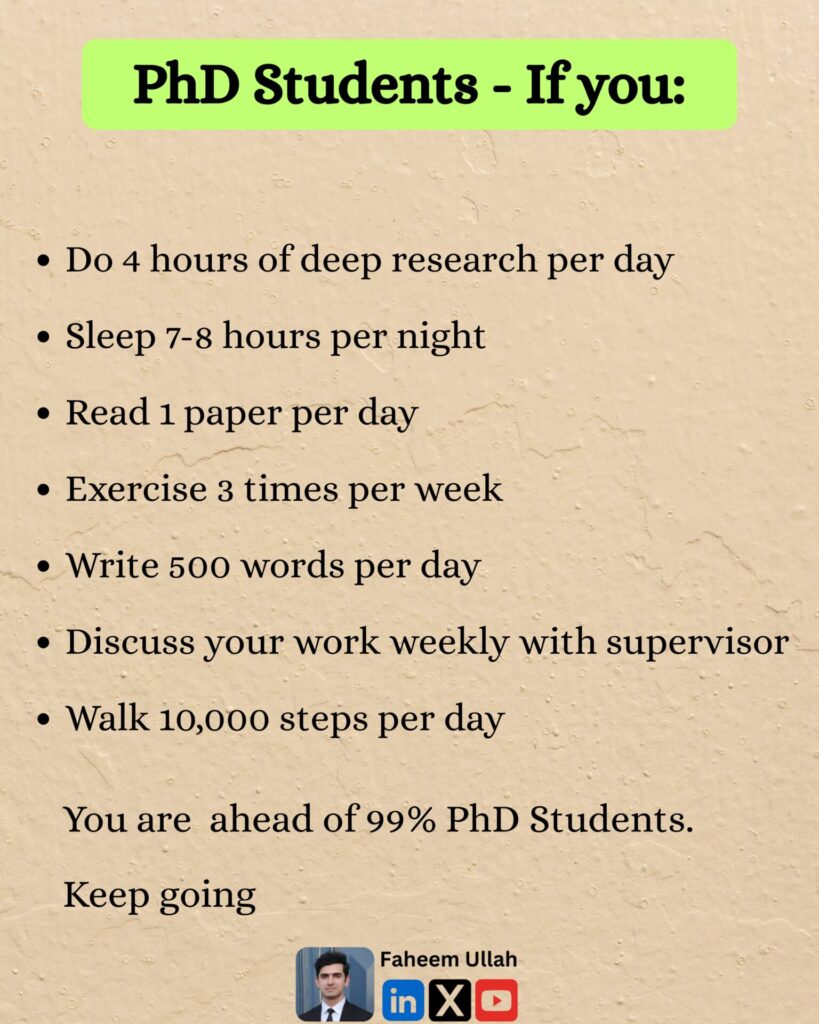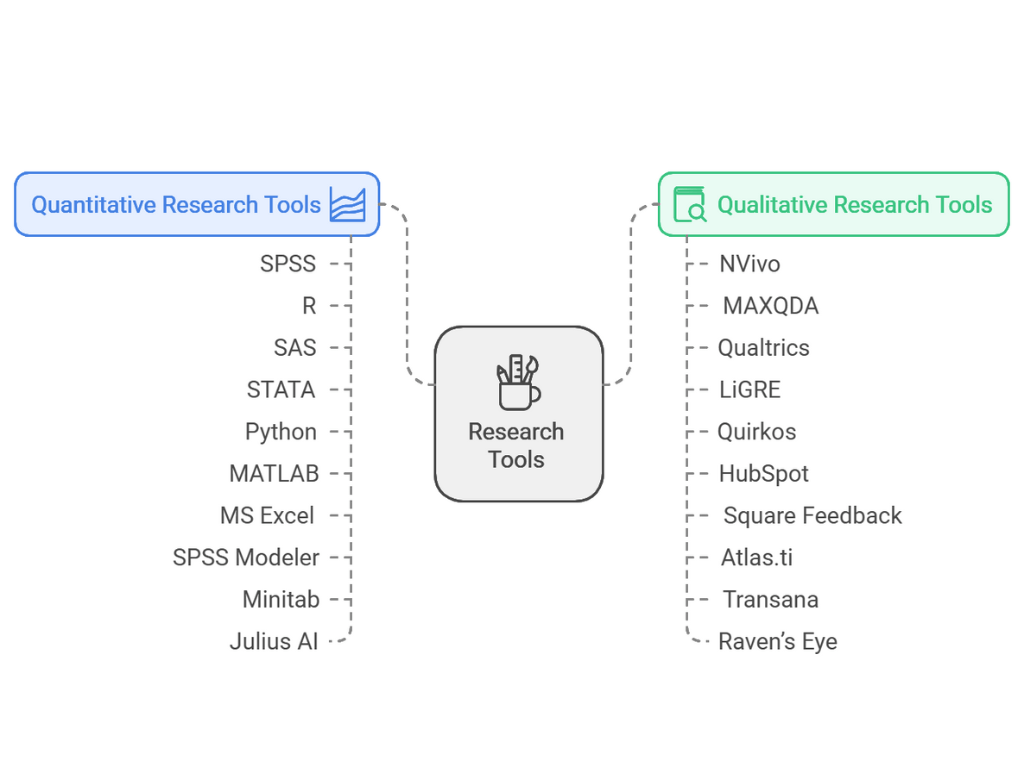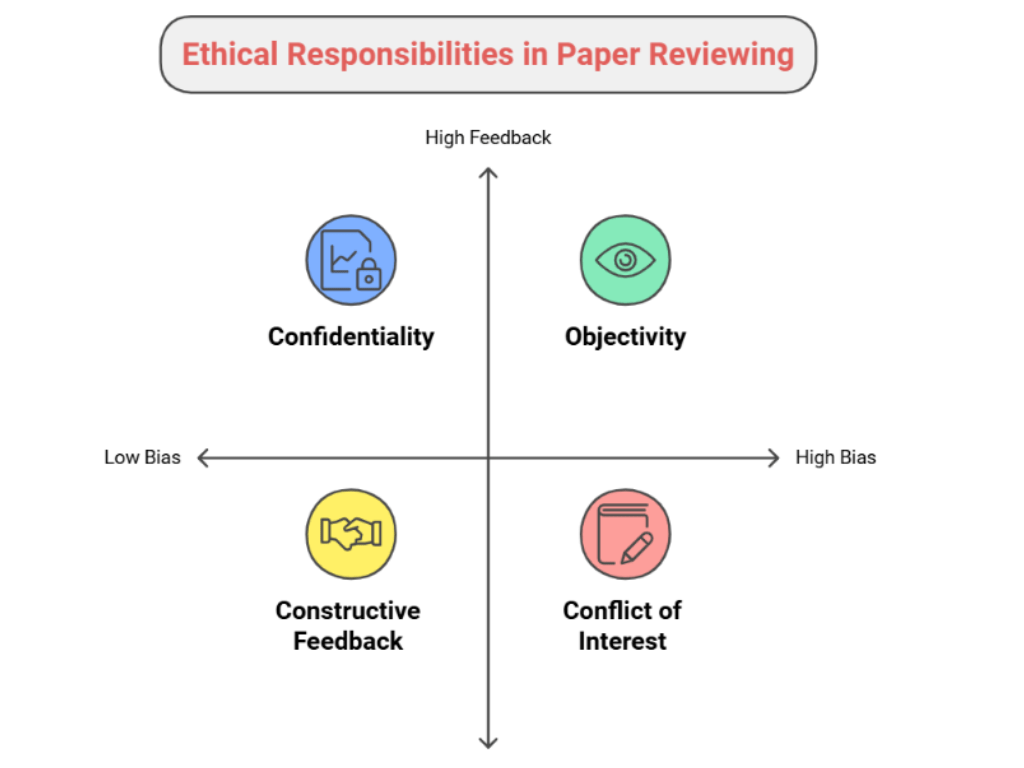
Are you planning to do a literature review?
Try SciSpace Agent
SciSpace will do 3 things for you.
- Identify papers for your literature review
- Extract data from those papers for your literature review
- Create an initial draft of your literature review
Doing a PhD is a long journey. It is full of challenges, doubts, and pressure. But it is also a journey of growth, discipline, and achievement. Many PhD students often feel lost and wonder whether they are making progress.
The truth is, progress in a PhD is not only about big milestones like publishing papers or defending your thesis. Real progress comes from small habits that you practice every single day.
If you are doing the following things consistently, you are already ahead of 99% of PhD students.
Let’s break it down step by step.

1. Do 4 Hours of Deep Research Per Day
PhD is not about being busy all day. It is about doing focused work. Many students spend hours replying to emails, attending meetings, or browsing social media. That is not deep research.
Deep research means reading, analyzing, writing, and thinking about your problem. It means blocking distractions and working on your core project.
If you can manage 4 hours of deep research daily, you will move faster than most students. Over one year, that adds up to more than 1,000 hours of serious work. That is what produces results.
2. Sleep 7–8 Hours Per Night
PhD is not a sprint. It is a marathon. To survive and perform well, you need proper rest.
Many students cut their sleep short. They stay awake late at night to write or analyze data. In the short term, this looks like productivity. But in the long run, it causes burnout.
Sleep restores your memory, sharpens your focus, and keeps your body healthy. Without it, you cannot think clearly or write effectively.
If you sleep 7–8 hours every night, you are already building a strong foundation for success.
3. Read 1 Paper Per Day
PhD is not only about doing experiments. It is also about understanding what others have done. Reading one research paper per day may sound small, but it compounds quickly.
In one month, that’s 30 papers. In one year, that’s more than 300 papers.
This habit keeps you updated with the latest developments in your field. It also helps you identify research gaps, avoid repeating past mistakes, and learn new methods.
Reading papers regularly makes writing your own papers much easier.
4. Exercise 3 Times Per Week
Your brain and body are connected. A tired body cannot support a sharp brain. Exercise keeps you physically fit and mentally alert.
You don’t need heavy workouts. Even simple activities like jogging, yoga, or cycling three times a week can make a big difference.
Exercise reduces stress and improves mood. It also boosts energy levels and helps you fight the “PhD blues.”
If you exercise regularly, you are not just working on your thesis. You are also working on your health, which will support you for life.
5. Write 500 Words Per Day
Many PhD students postpone writing. They wait until they “fully understand” their research. But writing should not be the final step. Writing should be a daily habit.
If you write 500 words every day, you will produce thousands of words each month. Within a year, you will have enough material for multiple chapters or papers.
These words don’t have to be perfect. They just need to capture your thoughts, methods, results, and ideas. Later, you can refine and edit them.
Daily writing makes the final thesis much easier.
6. Discuss Your Work Weekly With Supervisor
A PhD is not a solo project. You need guidance, feedback, and accountability. That is where your supervisor comes in.
Some students avoid meeting their supervisors because they fear criticism. But avoiding discussions slows you down.
Talking to your supervisor weekly helps you clarify doubts, correct mistakes early, and get new ideas. It also keeps your supervisor aware of your progress.
If you maintain regular discussions, you reduce the chances of surprises at the end.
7. Walk 10,000 Steps Per Day
Research life often means sitting at a desk for hours. This creates health problems like back pain, obesity, and fatigue.
Walking 10,000 steps a day is a simple but powerful habit. It keeps your body active and your mind fresh. Walking also gives you time to think. Many researchers get their best ideas while walking.
This habit improves both health and creativity.
Why These Habits Matter
Individually, each habit looks small. Together, they create a powerful system. They give you energy, focus, and momentum.
Most PhD students struggle because they neglect these basics. They work long hours without rest, write only when deadlines arrive, or avoid discussions with supervisors. This leads to stress and burnout.
By following these habits, you put yourself ahead of 99% of students. Not because you are smarter, but because you are consistent.
Keep Going
PhD is not about who works the hardest for one week. It is about who can stay consistent for years. These habits are the fuel that keeps you moving forward.
If you are doing 4 hours of deep research daily, sleeping well, reading one paper, exercising, writing 500 words, discussing your work weekly, and walking 10,000 steps, you are already winning.
You are not just surviving your PhD. You are thriving.
Keep going. The results will come.
Final thoughts
Success in a PhD is not about talent. It is about discipline, balance, and persistence. Build these habits, and you will finish strong.
Don’t forget to read: AI Tools for Literature Review
Best of Luck..




